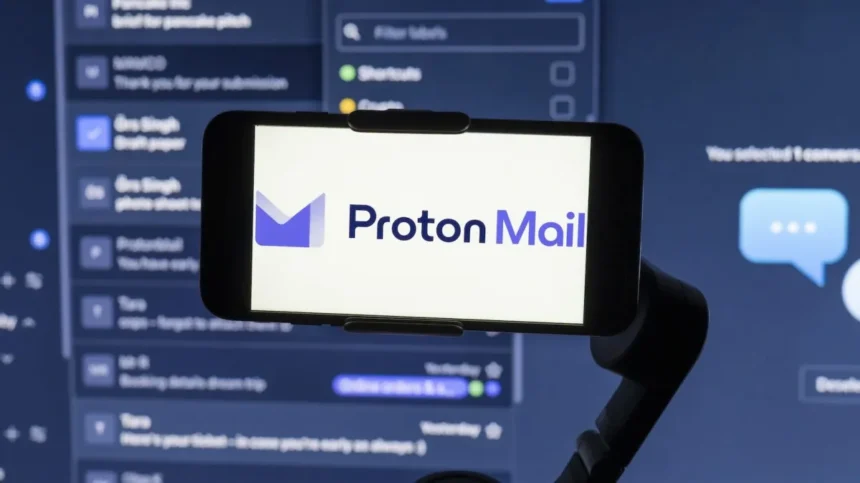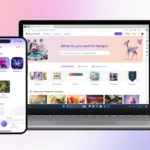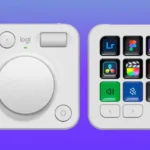Privacy app maker Proton has introduced a new AI-enabled writing assistant designed to help users compose emails based on simple prompts. This assistant can also redraft and proofread existing emails before they are sent.
This launch marks another step in Proton’s ongoing efforts to replicate many of Google’s productivity tools and features. Just last month, Google launched its own Gemini AI for Gmail to assist users in writing and summarizing emails. Now, Proton has followed suit with its own unique approach.
As expected from Proton, a Swiss company renowned for its suite of privacy-focused apps including email, VPN, password manager, calendar, cloud storage, and documents, its new assistant caters to those concerned about leaking sensitive data to third-party AI providers.
Proton Scribe, the new tool, is built on Mistral 7B, an open-source language model from French AI startup Mistral. Proton plans to continue refining this model to achieve the best performance for this use-case. Additionally, Proton is making Scribe available under an open-source GPL-3.0 license, facilitating third-party security and privacy audits.
Going Local
Proton Scribe can be deployed entirely at a local level, ensuring user data remains on the device. Moreover, Proton assures that its AI assistant will not learn from user data, a crucial feature for enterprise use-cases where privacy is vital.
The issue Proton aims to address is significant — businesses have been hesitant to fully embrace generative AI due to data privacy concerns. This initial version of Proton Scribe could help alleviate such concerns.
“We realized that whether or not Proton builds AI tools, users will use AI, often with significant privacy implications,” said Yen. “Rather than having users copy their sensitive communications into third-party AI tools with poor privacy practices, it is better to build privacy-first AI tools directly into Proton Mail.”
For users less concerned with security, Scribe can also be configured to run via Proton’s servers, which could result in faster performance depending on users’ hardware.
For those opting to run Proton Scribe locally, they need to download the model once to their machine. From that point, the AI Model operates entirely on-device without interacting with external servers.
For those who run this on Proton’s servers, the company emphasizes that no logs are kept and no data is shared with third parties.
“Only the prompt entered by the user is transmitted to the server, and no data is ever retained after the email draft is created,”
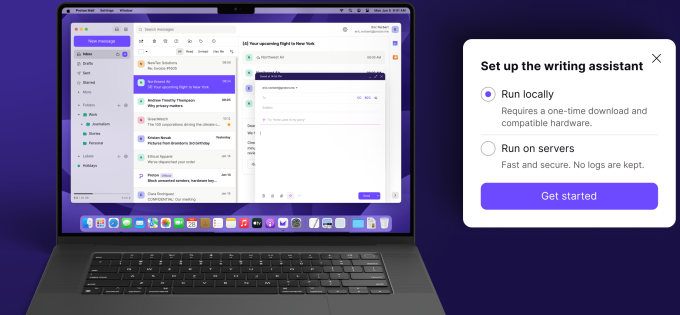
With Proton Scribe set up, users can type in a prompt, such as “request samples from a supplier,” and then hit the generate button.

Proton Scribe will then produce a template email based on the provided theme, which the user can edit and refine.
Given these privacy-centric features, there is at least one notable trade-off. Since Proton Scribe does not use any local data, its responses may not be particularly personalized or contextual — they will likely be generic, a point Proton acknowledged to TechCrunch.
However, Proton has added additional features called “quick actions” to make it easy for users to edit the drafts, such as changing the tone, proofreading, and making the text more concise.
“Over time, we will improve Proton Scribe, adding context and other enhancements, but always in a privacy-preserving way,” Proton stated.
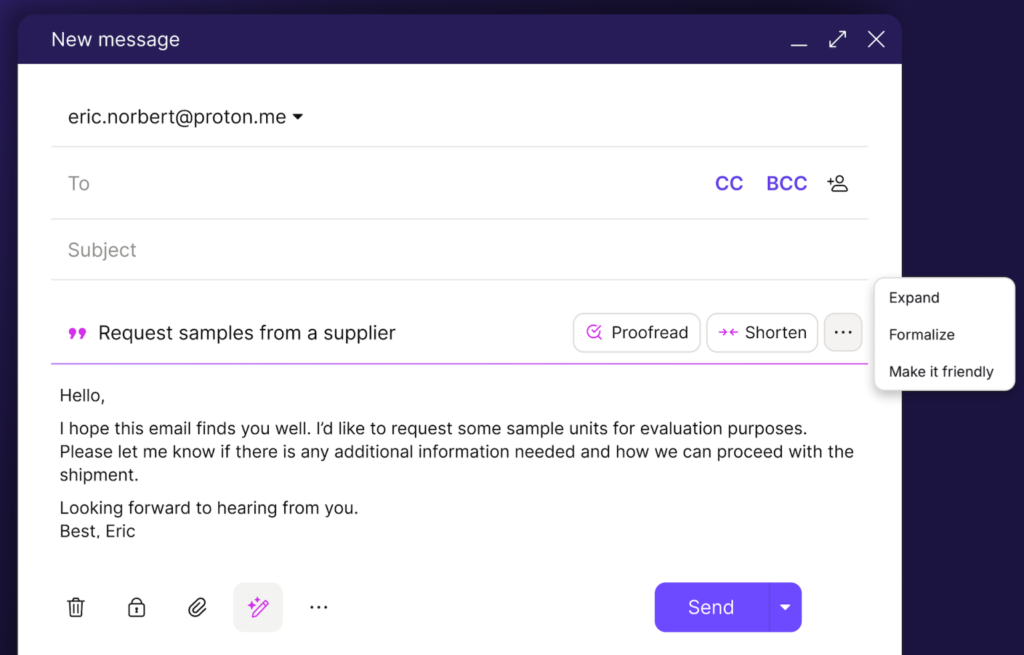
While Proton Scribe is currently limited to email, the company said it might expand the tool to its other products in the future “depending on demand,” with one obvious integration being its recently launched collaborative document editing app.
Starting today, Proton’s writing assistant will be available for Proton Mail on the web and desktop, with plans to extend the tool to mobile devices in the future. As for costs, Proton Scribe is primarily aimed at business users, with those on Mail Essentials, Mail Professional, or Proton Business Suite plans able to access the writing assistant for an additional $2.99 per month.
Additionally, those on Proton’s legacy and limited-availability plans such as Visionary or Lifetime will have free access to Proton Scribe. The company mentioned that it might extend this feature to other consumer plans in the future.



